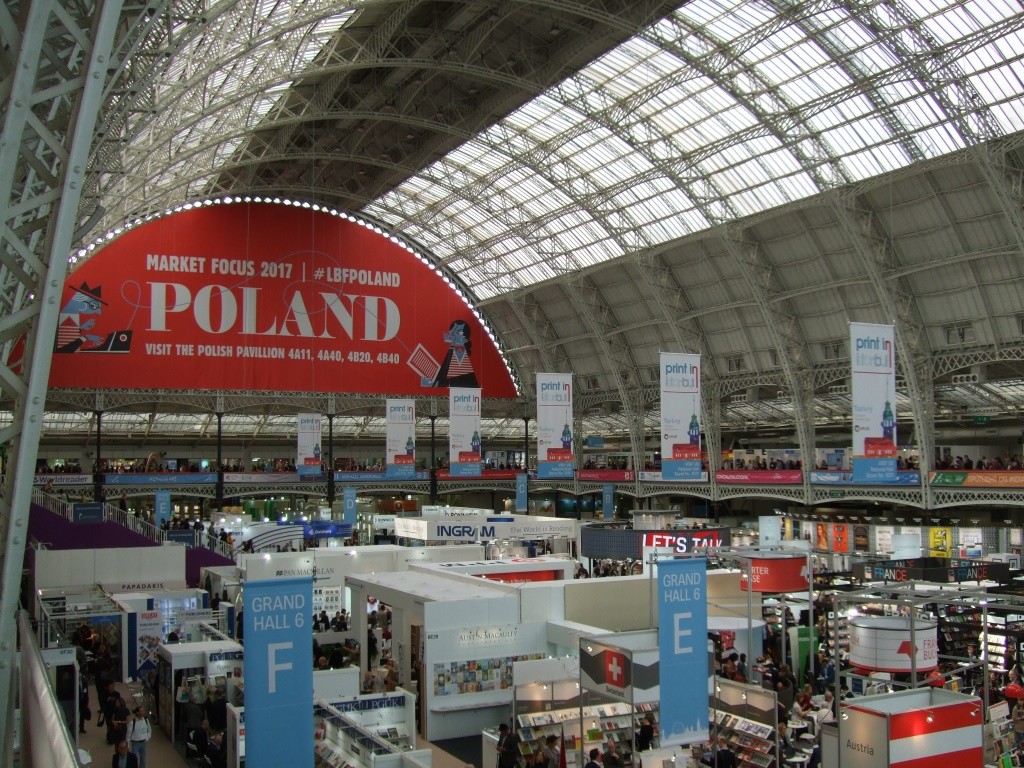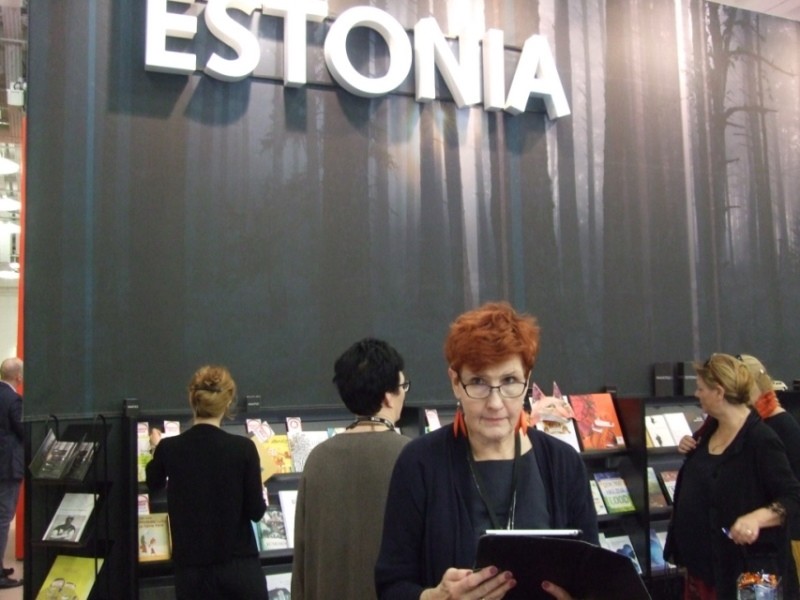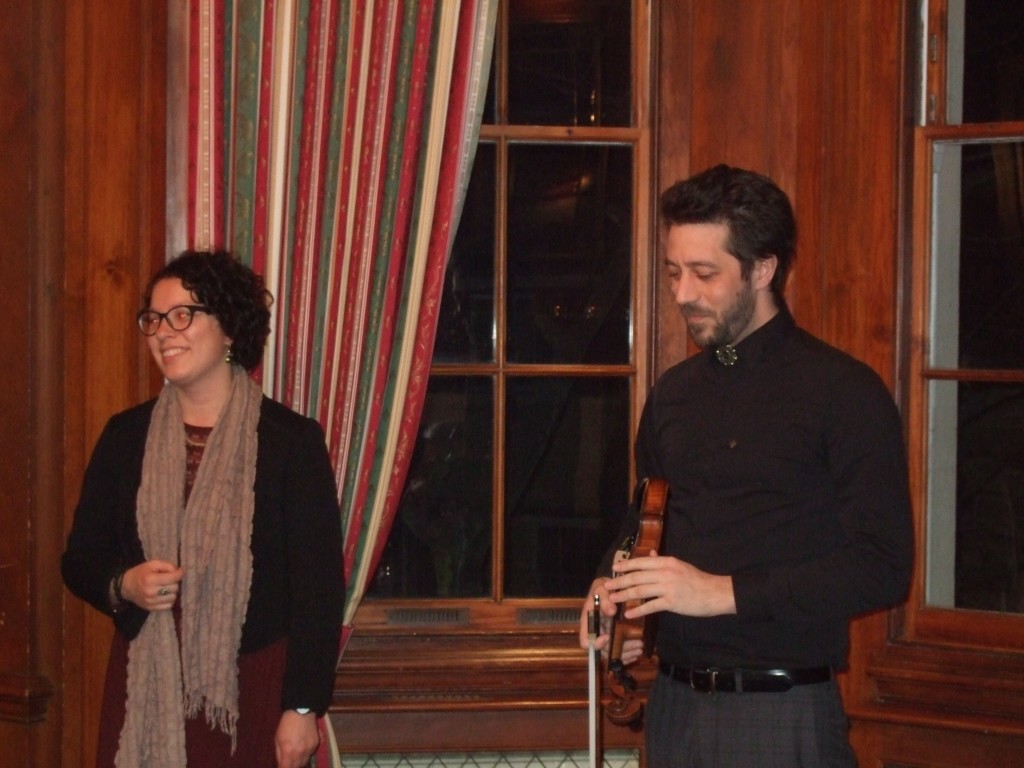For the Estonian delegation, taking part in the London Book Fair 2017 meant a preparation for the year 2018, when together with Latvia and Lithuania, Estonia will get the privileged position of a market focus country.
The London Book Fair is a global marketplace for rights negotiation and the sales and distribution of content across print, audio, TV, film and digital channels. This year’s event took place at the London Olympia from 14 to 16 March, and it would be correct to claim that the fair covered all aspects of the publishing industry.
Market focus countries
Over 25,000 attendees from over 130 countries were trying to make words go further, and needless to say it is not always an easy task. No matter whether a large country or a small one, being in the spotlight during the fair is of great help. This year’s market focus country was Poland. Next year, market focus countries will be Estonia, Latvia and Lithuania.
 Market focus will give a great opportunity to see a selection of the best writers from the Baltic countries in conversation with UK writers and publishers. Advertising towards the coming year was quite visible even now. Banners were being displayed in different halls, posters in the nearby street, and while one was stepping carefully along a crowded staircase in the Grand Hall Olympia, one couldn’t avoid noticing the smart logo of the Baltic countries.
Market focus will give a great opportunity to see a selection of the best writers from the Baltic countries in conversation with UK writers and publishers. Advertising towards the coming year was quite visible even now. Banners were being displayed in different halls, posters in the nearby street, and while one was stepping carefully along a crowded staircase in the Grand Hall Olympia, one couldn’t avoid noticing the smart logo of the Baltic countries.
Estonian publishers are not newcomers to the fair; they demonstrated their products and conducted face to face business in the hope to sign contracts and get sales. Kaidi Urmet, head of the Estonian Publishers’ Association, introduced Estonian World to the busy life at their stand, where she worked together with the Estonian Literature Centre to promote books among visiting professionals.
Demand for translated literature is growing
While at the Estonia stand, this writer enjoyed a short conversation with Piret Raud, the country’s most-translated children’s author, who began her career as an illustrator, and who seems to know how to create a unique children’s book.
The most recent statistics is showing that printed book sales in the UK are up by 7%, with growth fuelled by younger generations. It is reassuring to see how books generally, and print books in particular, are still appealing to young people, despite so many other forms of entertainment available and so much information competing for their attention.
E-book sales in the UK have declined by 4%, with multi-function devices, such as mobile phones and tablets, overtaking dedicated e-readers. And while the e-reading devices are facing a changing process, physical bookshop sales are growing.
Interesting for many, demand for translated literature is also growing. Newcomers among the extraordinarily popular foreign authors are Elena Ferrante with her Neapolitan novels and Han Kang from South Korea, whose book, “The Vegetarian”, has touched several universal themes connected with keeping oneself balanced in the fast changing modern world.
What actually shapes the identity of contemporary literature is of utmost interest, being also a permanent topic for the exciting and ongoing discussions among the book fair professionals. What is the position of national literature written in the context of multilingual local and global settings?
Some translators, agents and editors are quick to spot relevant trends in order to reach their readers in the ever-changing forest of world literature. Krista Kaer from Varrak publishers in Tallinn is one of them, and she seems to know at least some of the answers to sophisticated questions.
Estonia’s stand offering a diverse choice
The London Book Fair 2017 had an intense seminar programme with more than 200 events scheduled. In addition to this, countless business lunches and dinners, meetings and other related events took place all around this vibrant capital.
Word is Music, an evening of poetry and music to celebrate the Estonian Language Day, took place at the residence of the Estonian ambassador to the UK, Lauri Bambus. The fabulous storyteller Veronika Kivisilla recited her own poetry, and Adam Cullen, who has translated her poetry, performed it enjoyably in English – the literary duo acted in sublime harmony.
Finally, it will be of utmost interest to see what Estonian authors and books stir interest and become, perhaps, popular among those whose language is English. Will it be Mihkel Mutt with “The Estonian Circumciser” or Paavo Matsin with “The Gogol Disco”? Ilmar Taska with “Pobeda 1946 – A Car Called Victory” or Rein Raud with “The Death of the Perfect Sentence”, Maarja Kangro with “The Glass Child” or Meelis Friedenthal with “The Bees (The Willow King)”.
Display bookshelves at Estonia’s stand were extensive, offering a diverse choice. The book fair provided a perfect platform to engage with customers and would-be customers, to build awareness of one’s brand in a wider environment, and to do business. And last but not least, in a year, London Book Fair 2018 might give an opportunity to get noticed more than ever.
I
Cover: Olympia Conference Centre. Photos courtesy of Ann Alari and London Book Fair 2017.







